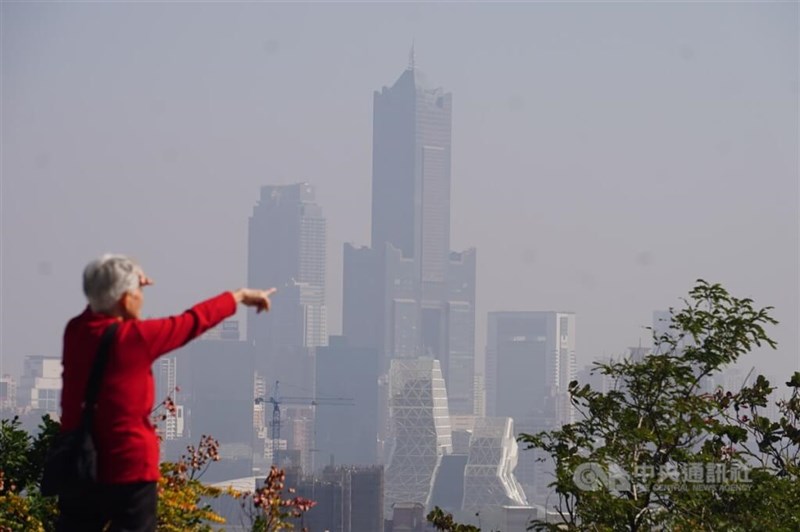
Taipei, July 4 (CNA) Taiwan's Ministry of Environment (MOENV) on Friday pledged to review its air quality monitoring network within a month, after medical professionals urged improvements in tracking nitrogen dioxide (NO₂) levels, especially in high-traffic urban areas.
Chang Shun-chin (張順欽), head of the MOENV's Department of Monitoring and Information, told CNA the ministry will reassess the number and placement of monitoring stations across the country.
The ministry's commitment came in response to a joint press conference held by several medical associations, calling for an upgrade in the nationwide monitoring of NO₂ and PM0.1 (ultrafine particles).
The experts cited international studies linking NO₂ exposure to at least 10 major cancers, including lung, liver, breast and uterine cancers.
Huang Jian-pei (黃建霈), an OB-GYN at Mackay Memorial Hospital, pointed out that uterine cancer has now overtaken cervical cancer in Taiwan. In addition to factors like declining birth rates and obesity, environmental exposure -- especially to NO₂ -- may be playing a role.
He referenced a 2024 U.S. study tracking 33,417 breast cancer patients over a decade, which found that each 5 ppb increase in NO₂ exposure raised the risk of uterine cancer by 23 percent, and by as much as 53 percent for urban residents.
Chen Kuo-hu (陳國瑚), OB-GYN and president of the Taiwan Association for Minimally Invasive Gynecology, added that NO₂ exposure was also associated with a 21 percent increase in ovarian cancer risk, rising to 44 percent among city dwellers.
Ovarian cancer ranked among Taiwan's top 10 cancer-related causes of death in 2024.
Democratic Progressive Party (DPP) lawmaker Liu Chien-kuo (劉建國) echoed these concerns, criticizing the ministry for maintaining only six traffic-related monitoring stations since the 1990s.
Liu called on the MOENV to submit a concrete plan for expanding the network to the Legislative Yuan within one month.
In response, Chang emphasized that source control, such as reducing vehicle emissions and accelerating the shift to electric transportation, is more fundamental to addressing air pollution.
Still, he noted, NO₂ levels have already shown significant improvement. Between 2015 and 2024, average NO₂ concentrations dropped from 14.21 to 9.57 ppb at 78 general monitoring stations, and from 25.67 to 18.8 ppb at traffic-specific stations.
- Business
GlobalWafers opens advanced 12-inch wafer plant in northern Italy
10/15/2025 09:36 PM - Society
Youtuber Holger Chen bailed over 'behead the president' remark
10/15/2025 09:16 PM - Sports
Jeffrey Koo Jr. seeks WBSC vice presidency to boost Asian baseball
10/15/2025 08:33 PM - Cross-Strait
Ex-airline employee indicted over attempt to obtain MAC research for China
10/15/2025 08:25 PM - Business
Hon Hai's market cap soars 850 times since TWSE listing
10/15/2025 08:20 PM